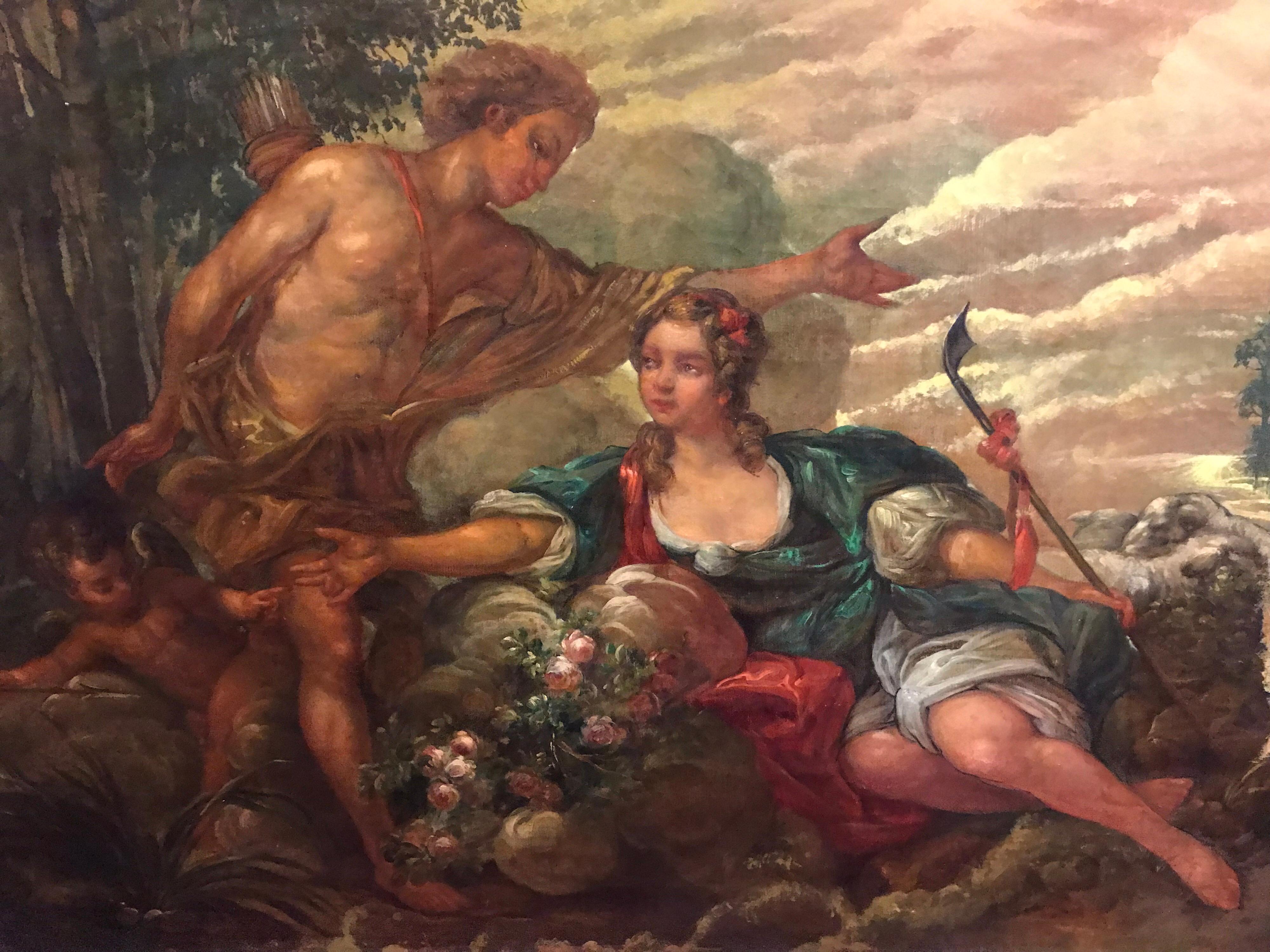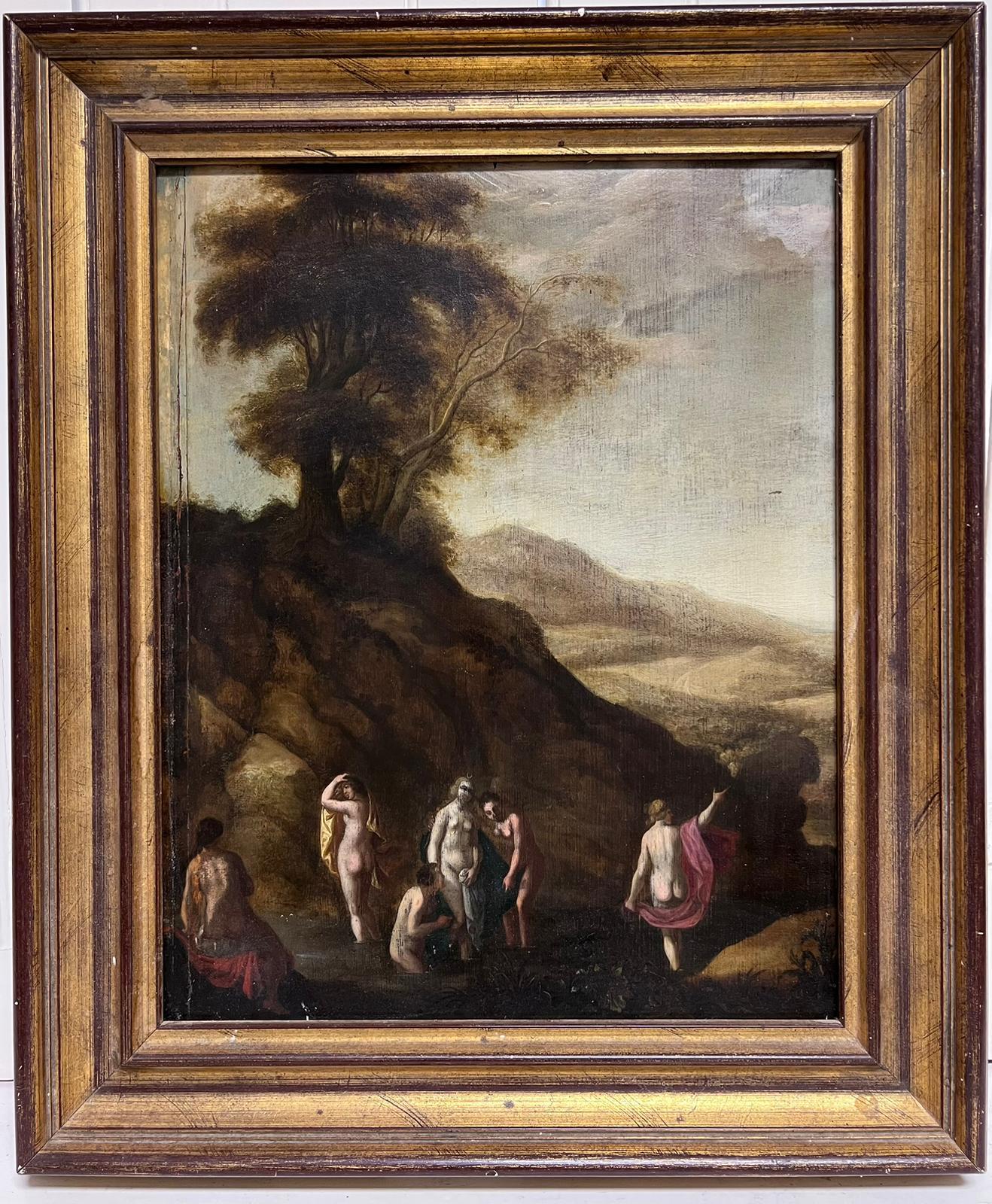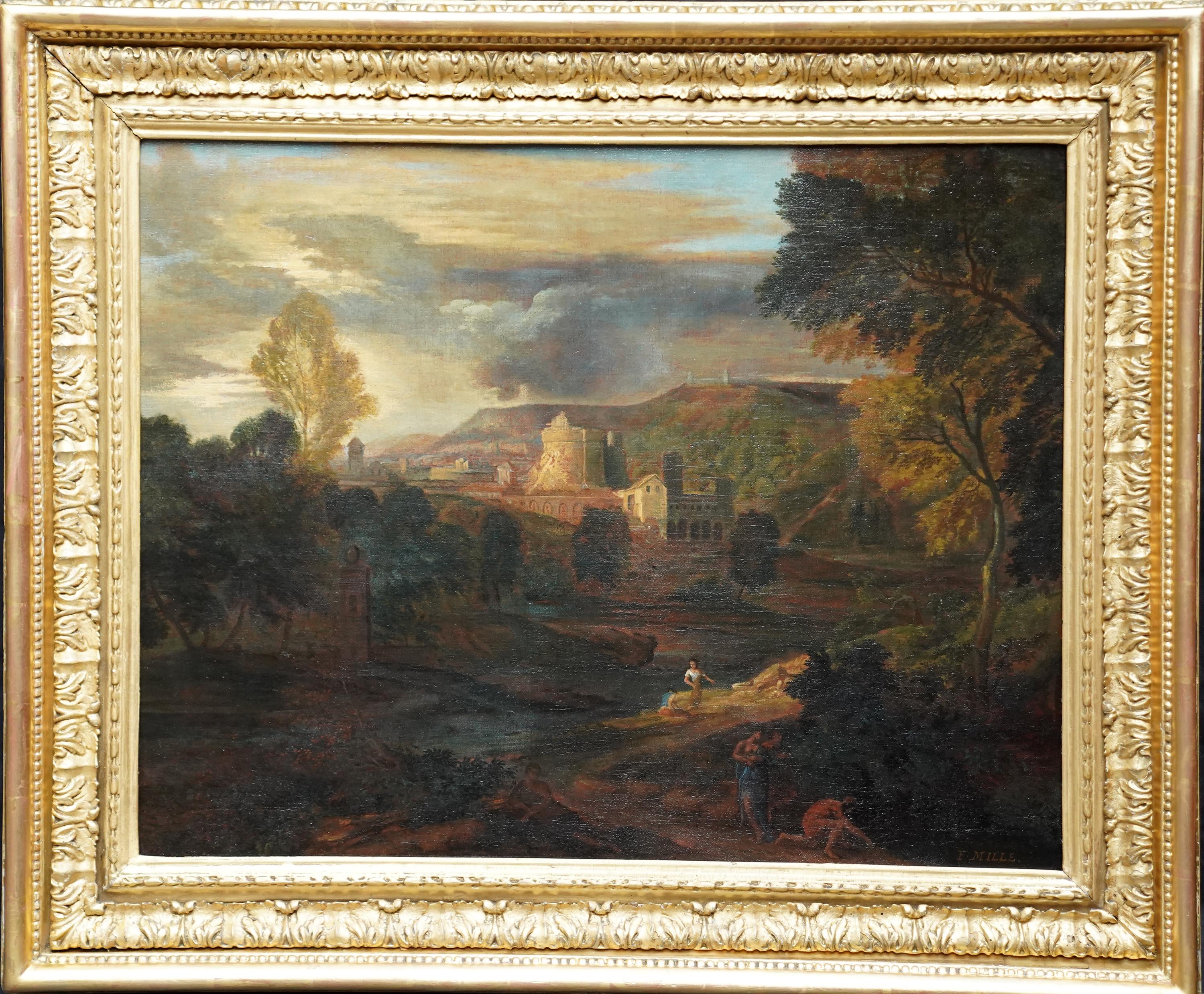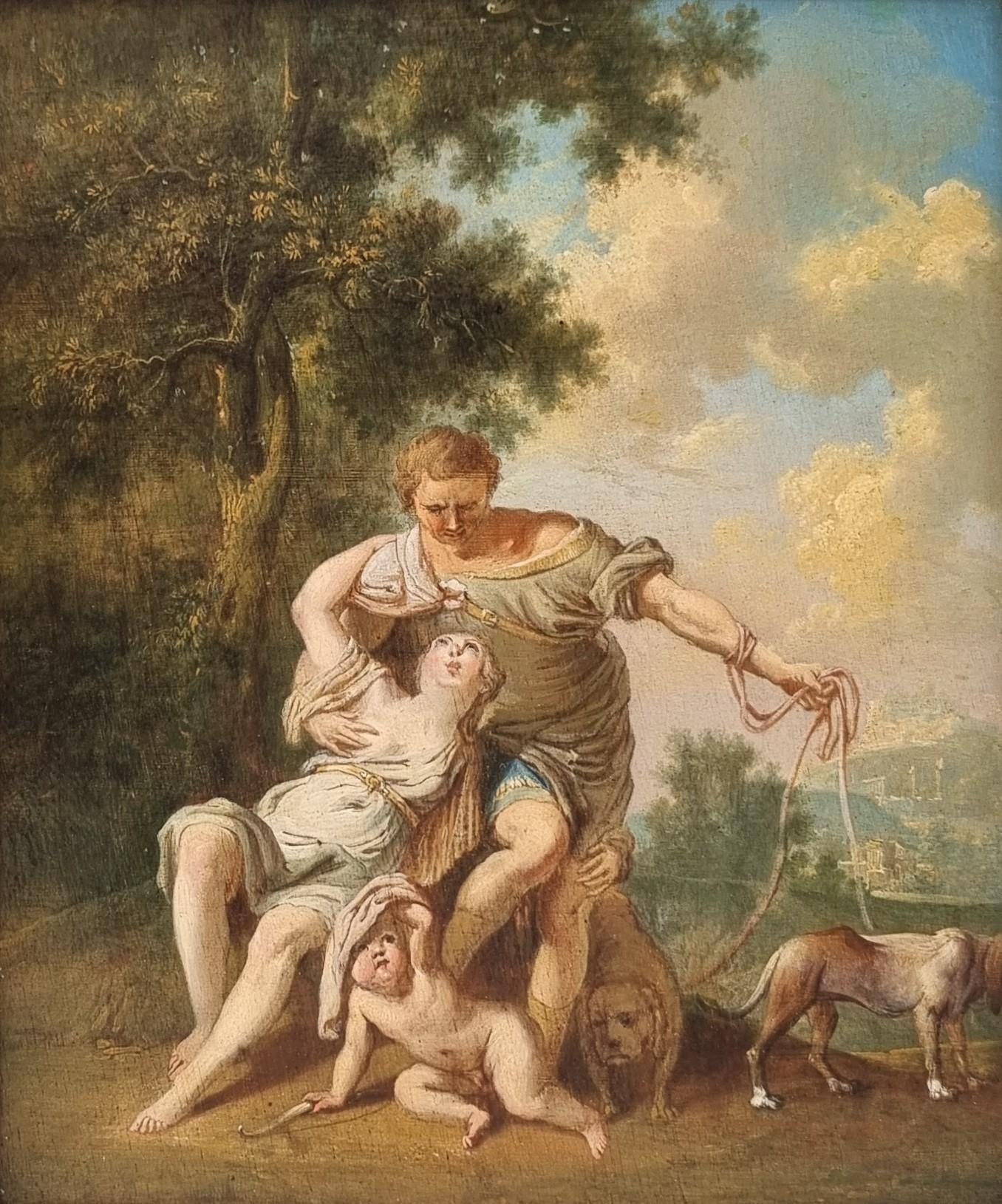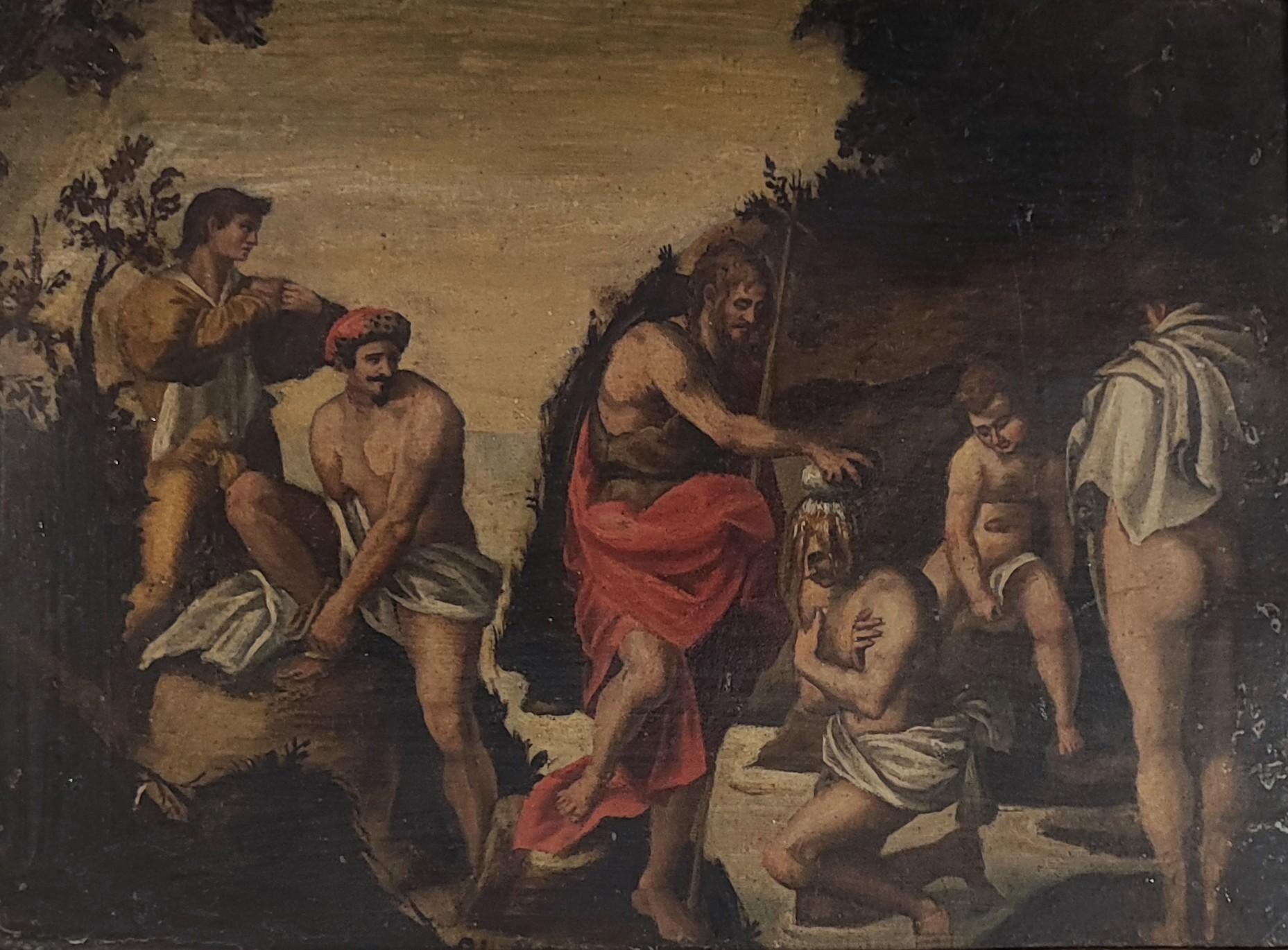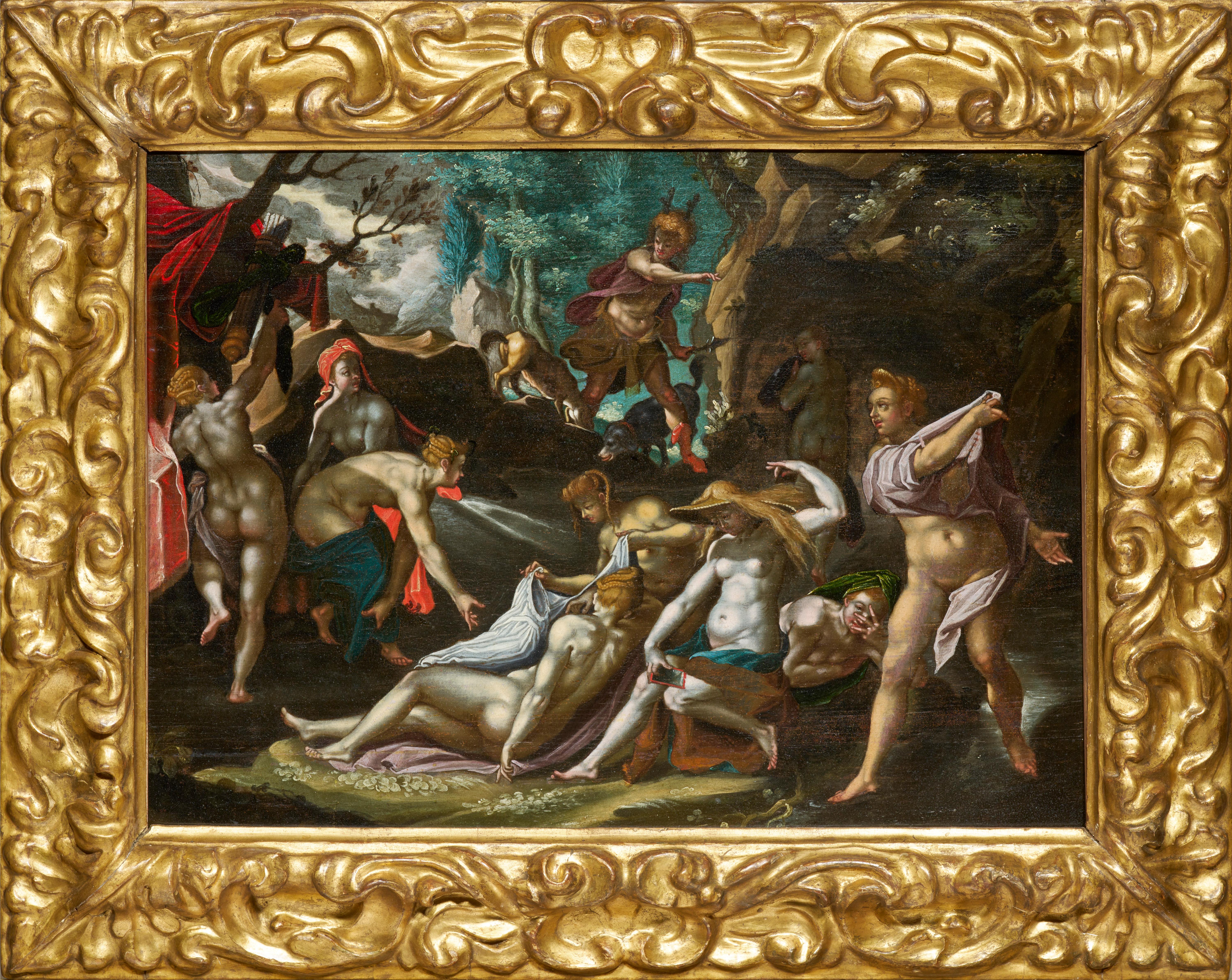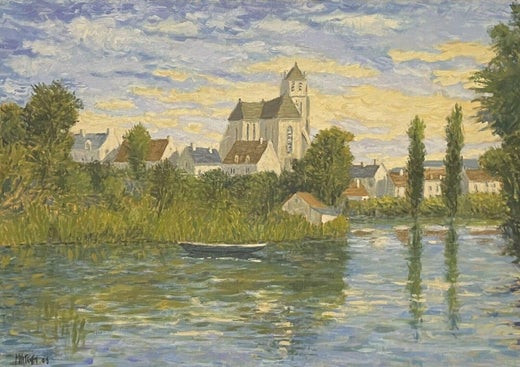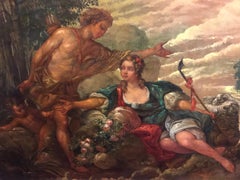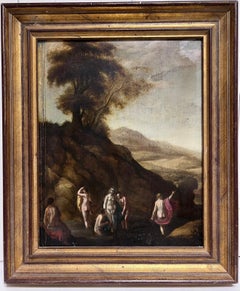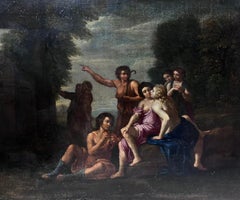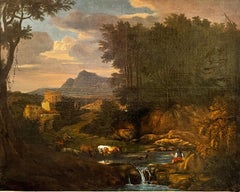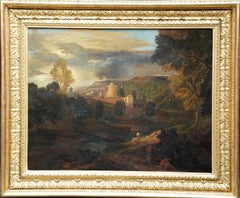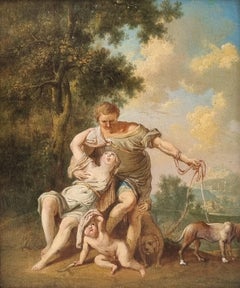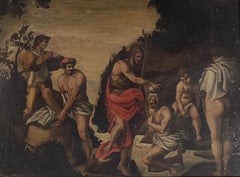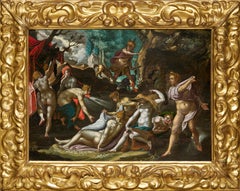Items Similar to Mythological Scene Various Classical Figures in Landscape
Want more images or videos?
Request additional images or videos from the seller
1 of 10
French SchoolMythological Scene Various Classical Figures in Landscape
$1,190.17
$10,242.3988% Off
£871.50
£7,50088% Off
€1,014.48
€8,730.4688% Off
CA$1,639.67
CA$14,110.7788% Off
A$1,786.95
A$15,378.2588% Off
CHF 946.27
CHF 8,143.4588% Off
MX$21,463.19
MX$184,70988% Off
NOK 11,979.97
NOK 103,097.8588% Off
SEK 11,014.40
SEK 94,788.3388% Off
DKK 7,577.04
DKK 65,206.8588% Off
About the Item
Artist/ School: French School, 20th century
Title: Mythological Scene with Figures in Classical Landscape
Medium: oil painting on board, unframed
Size:
board: 19.75 x 27 inches
Provenance: private collection, France
Condition: The painting is in overall very good and sound condition.
- Creator:French School (1900 - 1973, French)
- Dimensions:Height: 19.5 in (49.53 cm)Width: 27 in (68.58 cm)
- Medium:
- Movement & Style:
- Period:
- Condition:
- Gallery Location:Cirencester, GB
- Reference Number:1stDibs: LU509310353802
Henri Therme was born on May 28 1900 in Le Creusot from an old Burgundian family. He lived in Paris from his childhood. His parents destined him for the profession of engineer, but very early on, he truned to painting. He abandoned his engineering studies to devote himself entirely to the arts in 1925. He entered the Beaux-Arts in Paris, then the Academy of Montmartre under the tuition of Yvan Cerf, Jean Puy and Charles Camoin. Yvan Cerf instilled in him a taste for geometry and architecture, which will cause the artist to fall in love with the theories and the fragmented universe of Cubism. He was president of the Society of Friends of the Arts of Yonne, a member of the editorial board of the publication Le Peintre, the collector's guide, and editor for many years of a section devoted to the arts in the daily L'Yonne republican and the newspaper Terres Latines. He was also an editor for the artistic and literary magazine Le Groupe.
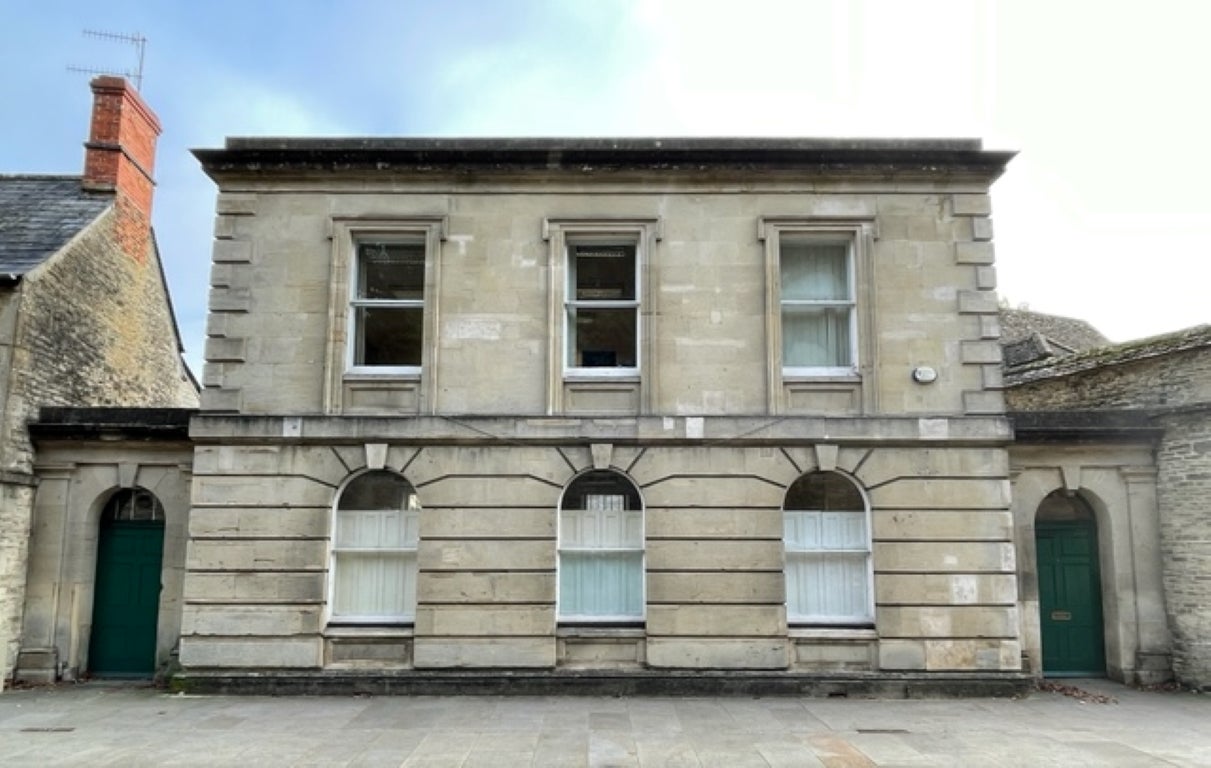
About the Seller
5.0
Platinum Seller
Premium sellers with a 4.7+ rating and 24-hour response times
Established in 1989
1stDibs seller since 2016
5,014 sales on 1stDibs
Typical response time: 2 hours
- ShippingRetrieving quote...Shipping from: Cirencester, United Kingdom
- Return Policy
More From This Seller
View AllHuge Antique French Rococo Oil Painting Mythological Lovers in Landscape
Located in Cirencester, Gloucestershire
The Hunter
French School, late 19th century
oil painting on canvas, framed
framed size: 32 x 42 inches
provenance: private collection, France
Superb large scale French oil painting,...
Category
Late 19th Century Rococo Landscape Paintings
Materials
Oil
$7,408 Sale Price
30% Off
1600's French Old Master Oil Painting Nude Figures in Landscape Oil on Panel
Located in Cirencester, Gloucestershire
Nude Figures in Wooded Landscape
French School, 17th century
oil on wood panel, framed
framed: 25.5 x 21.5 inches
board: 20 x 15.5 inches
provenance: private collection, France
condi...
Category
17th Century Old Masters Figurative Paintings
Materials
Oil
17th Century French Old Master Oil Painting Classical Robed Semi Nude Figures
Located in Cirencester, Gloucestershire
17th century French School
circle of Nicolas Poussin (French 1594-1665)
"Figures in Arcadia"
oil on canvas, unframed
canvas: 16 x 20 inches
provenance: private collection, England
condition: very good and sound condition
Nicolas Poussin was a renowned French painter of the 17th century. He is considered one of the greatest figures of classical French Baroque art...
Category
17th Century Old Masters Figurative Paintings
Materials
Oil, Canvas
$5,250 Sale Price
30% Off
Huge 18th Century Italian Old Master Oil Painting Figures & Animals Arcadian
Located in Cirencester, Gloucestershire
The Arcadian Landscape
Italian School, 18th century
oil painting on canvas, unframed
canvas size: 32 x 40 inches
condition: excellent condition for its age, fully restored.
provenance: from a private collection in Paris, France.
Large scale classical 18th century Italian Old Master...
Category
Early 18th Century Old Masters Landscape Paintings
Materials
Canvas, Oil
Fine 18th Century Italian Classical Huge Oil Painting Figures Animals Landscape
By Jan Frans van Bloemen (Orizzonte)
Located in Cirencester, Gloucestershire
Figures & Animals in Classical Landscape
circle of Jans Frans Van Bloemen (Orizzonte 1662 - 1749), unsigned
oil on canvas, framed
framed: 28.5 x 42.5 inches
canvas: 19 x 34 inch...
Category
18th Century Old Masters Landscape Paintings
Materials
Oil
Very Fine 18th Century Italian Oil Painting Nude Figures in Classical Landscape
Located in Cirencester, Gloucestershire
Classical Figures in Ancient Landscape
Italian School, 18th century
oil on panel,
painting: 9 x 12 inches
provenance: private collection, Paris
condition: very good and sound condition
Category
18th Century Baroque Figurative Paintings
Materials
Oil
You May Also Like
Classical Landscape - French 17th century art Old Master oil painting
By Jean François Millet
Located in Hagley, England
This superb 17th century French Old Master oil painting is attributed to Jean Francois Millet. Painted circa 1670 it is a classical landscape with figures by a bend in a river in the...
Category
17th Century Old Masters Landscape Paintings
Materials
Oil
$19,665 Sale Price
20% Off
French Mythological Painting 18th Venus and Adonis after VERONESE LEMONNIER
By Anicet Charles Gabriel Lemonnier
Located in PARIS, FR
Anicet Charles Gabriel LEMONNIER (Attributed to)
Rouen, 1743 – Paris, 1824
Venus and Adonis
Oil on wood panel
24 x 20 cm (35 x 31 cm with frame)
Very beautiful old frame in gilded wo...
Category
1770s French School Figurative Paintings
Materials
Oil
The peace of your nights descends into their thoughts
Located in Genève, GE
Work on paper mounted on wood
35.5 x 45.5 x 2 cm
Category
Late 18th Century Old Masters Figurative Paintings
Materials
Oil
Diana and Actaeon, a Mannerist painting after Joseph Heintz the Elder
Located in PARIS, FR
This painting seduced us with its rich colors. Depicting Diana and her companions surprised by Actaeon, it was inspired by an engraving by Aegidius Sadeler II after a painting by Jos...
Category
17th Century Old Masters Nude Paintings
Materials
Oil, Wood Panel
"Classical Landscape with Figures"
Located in Edinburgh, GB
Attributed to Jan Gerritsz. Stockman (1603–1661)
"Paesaggio Classico con Figure" (Classical Landscape with Figures)
Medium: Oil on canvas
Dimensions (Framed): 162 x 146 cm
Dimensions...
Category
17th Century Landscape Paintings
Materials
Canvas, Oil
Bacchanale Mythological Carpioni Paint Oil on canvas 17th Century Old master Art
Located in Riva del Garda, IT
Giulio Carpioni (Venice, 1613 - Vicenza, 1678), Attributable to
Bacchanale
Oil on canvas 98 x 132 cm. - In frame 120 x 154 cm.
This high-quality, beautifully preserved painti...
Category
17th Century Old Masters Paintings
Materials
Oil
$15,929 Sale Price
20% Off
More Ways To Browse
Classical Century Oil Painting
French Old Master
Classical Figurative Paintings
Old Master Painting French
Classical Landscape Oil Painting
Oil Painting Mythological
French School Masters
Classical Scene Paintings
French Old Master Landscape
Oil Painting Dress
Soldier Painting
Uxval Gochez Gallery
Contemporary Face Painting
Italian Oil Painting Old Man
Peter Max Acrylic On Canvas
Bad Art
Beauty Oil Painting
Old Master Painting Italian
